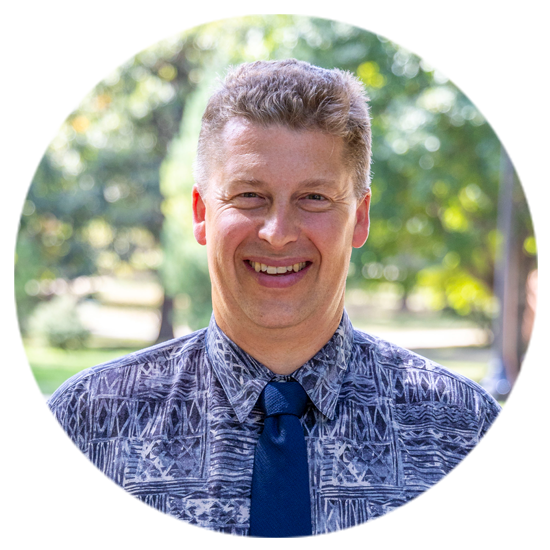Topic: Measuring Dijets From Ultra-Peripheral Heavy Ion Collisions
This talk focuses on the Compact Muon Solenoid Experiment that measured dijets produced in photon-nuclear collisions using data taken at the Large Hadron Collider in late 2015. Dijet measurements are potentially useful in constraining the gluon density over a wide range of x and Q, which is needed in order to measure the quark-gluon plasma viscosity and to search for the color-glass condensate. Recently it has been suggested by several theoretical groups that photon induced dijets can also be used to examine the correlation between the gluons in the nucleus. This analysis focused on the latter, examining azimuthal correlations between the total transverse momentum of the dijets and the momentum difference of the dijets. Following the prescription suggested by theorists, a positive correlation was found.

Speaker: James Bowen
James L.S. Bowen grew up in Vermillion, South Dakota and Pocatello, Idaho; and now considers Overland Park, Kansas to be home. He is an Assistant Professor of Physics at Baker University in Baldwin City, Kansas. He is also a submarine officer in the U.S. Navy Reserve, and an Adjunct Researcher in the Physics Department at the University of Kansas.
Bowen received a B.S. in History from the University of Idaho in May 2000. A Navy ROTC student, Bowen was commissioned as an officer in the U.S. Navy upon graduation. He completed Navy Nuclear Propulsion training and served three years on the U.S.S. Memphis (SSN-691), a Los Angeles-class fast attack submarine, followed by two years at the Naval Submarine Support Command, Pearl Harbor. Following his release from active duty in 2006, Bowen has continued his Naval service as a drilling reservist. Assignments in this status have included Navy Expeditionary Warfare in the Pacific Northwest; U.S. Strategic Command in Omaha, Nebraska; the Office of Naval Research/Naval Research Laboratory in Washington, D.C.; and presently Submarine Force, Pacific Fleet at Pearl Harbor. Bowen also served at NATO/ISAF Headquarters in Afghanistan in 2013 during a six-month recall to active duty.
Having become interested in further studies in nuclear physics as a result of his Navy nuclear power background, Bowen began pursuing undergraduate studies in physics, receiving a B.S. in Physics from the University of Idaho in 2008. He subsequently completed an M.S. in Physics at Iowa State University in 2011. It was here where he first became involved in experiments in high energy nuclear physics, participating in the PHENIX Experiment at Brookhaven National Laboratory. He began Ph.D. studies in experimental high energy nuclear physics at the University of Kansas in 2011, where he joined the CMS Experimental Collaboration at CERN. He spent nine months in residence at CERN in France/Switzerland in 2015-16, where he performed dissertation research. He graduated with his Ph.D. in 2018. Bowen subsequently worked at the Naval Oceanographic Office as a civilian physicist from 2018 to 2021, where he worked on efforts in ocean acoustics and participated in oceanographic surveys. He returned to Kansas in 2022, when he assumed his current position at Baker University.
Bowen received the Carnegie Hero Medal and the Navy Marine Corps Medal for actions taken during flooding in Ames, Iowa in August 2010. Bowen also received, as a member of the CMS Collaboration, the 2025 Breakthrough Prize in Fundamental Physics. Additionally, he is an Eagle Scout.
You can register for this talk here.

